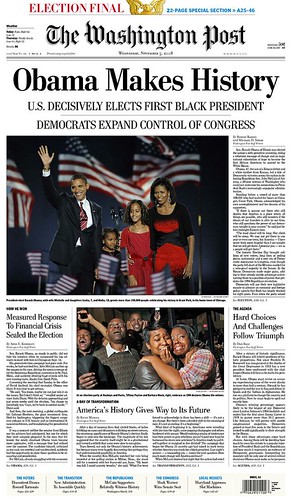I have discovered podcasts!
(I'm REALLY late to this party, I know...) Among other things I have been devouring
while I work my fingers to the bone on a craft project (that promises to bring
in actual money this summer), I found this little retrospective on a 2006 IQ2US
debate on the freedom of speech. IQ2US (Intelligence Squared US) resurrected the
9-year-old debate in order to address the Charlie Hebdo debacle of January
2015.
The motion put before the debate panel was "Freedom of
expression must include the license to offend." The "arguments for" panel featured,
among others, the late celebrity atheist Christopher Hitchens. (Listening to
Hitchens act out, merely within the context of this debate, it became obvious
why he would lead the charge in favor of a "license to offend." It seems giving offense was his personal
crusade.)
Among the "arguments against" panelists was Mari Matsuda, currently professor of law at
the William S. Richardson School of Law in Hawaii, who, back in 2006, was a
teacher and "activist scholar" at the Georgetown University Law
Center.
After consistently rudely interrupting and disrespecting
the panelists on the opposing side, Hitchens was given his opportunity to summarize his
argument:
"It
is wrong and always has been for churches--powerful secular human
institutions--to claim exemption from criticism, which is what's really being
asked here. If there's gonna be respect,
it has to be mutual Does Islam respect
my right to my belief? Of course it
doesn't. Does it respect the right of a
Muslim to "apostasize" and change belief? Of course it doesn't. I can name now four or five friends...who
have to live their lives under police protection for commenting on Islam... Here is an enormous religion with gigantic
power that claims that an archangel spoke to an illiterate peasant and brought
him a final revelation that supersedes all others. It's a plagiarism by an epileptic of the
first bits of Judaism and Christianity!
How long do you think I'm gonna be able to say that anywhere I
like? It would already be quite a risky
thing to say in quite a lot of places. I
did not come the United States of America 25 years ago to learn how to keep my mouth
shut. I'm here to reject all offers that
I change that policy...however simperingly they are put."
Given her turn to summarize, Matsuda argued thus:
"The "n-word" is hollered
out from a passing car, to let a black man know that he is not walking in a neighborhood
where he is welcome, or safe. The
speaker knows the effect of that word, and uses it precisely because it
terrorizes. Why is it that we recognize,
in American law, that if someone spits on your shoe, that's an attack on your
personhood; but we won't recognize words that we know--socially, historically,
from the reality of the human lives that we live--have exactly the same effect
on your personhood and your ability to move freely? I am talking about liberty and it's
fascinating that we are all coming from the "enlightenment"
tradition. As much as we disagree, I
feel affinity with people on the opposing side because we are ALL concerned
with losing our democracy, and losing our freedom. I think there are forms of speech that make us less free because we stop
talking to each other and we don't have the conversations we need to survive...
"There IS hatred of Islam in this
country, and it's not a healthy thing.
There is also ignorance, and we
need to open a space where we can talk to each other, disagree, criticize and
learn; and that space closes when people are allowed to assault." (Emphasis
mine...)
Listening to these snippets, I had a couple of off-the-bat
impressions. Hitchens struck me as an
egotistical ideologue hell bent on winning converts to his philosophy through
shaming and offending anyone who had the audacity to disagree with him. Matsuda seemed to take a more reasoned
approach, appealing to the listeners' sense of humanity and fairness to make
her point. And, for the record, I agree
wholeheartedly with Matsuda's argument that there are, in fact, forms of speech
that make us less free, because they
inhibit our ability to talk civilly to each other and "have the
conversations we need to survive." If I had to choose whose kool-aid I would
drink, it would definitely be Matsuda's.
But I'm pretty sure that's because Matsuda's argument appealed to my
feminine sense of what constitutes effective persuasion, more than Hitchens'
in-your-face, derisive, distinctly male style of argument.
But neither of these panelists really addresses the
issue. In fact, the issue doesn't address the issue.
Because the issue is not that freedom of speech doesn't exist, or that
it exists in some modified form that allows you to say anything you want as
long as you don't hurt anyone's feelings.
Charlie Hebdo would not have been able to draw itself into hot water
with Muslim extremists if there was not freedom of speech in France. Salmon Rushdie's Satanic Verses would not have
been published if Great Britain didn't have free speech. Christopher Hitchens would not have been
allowed to be so publicly offensive to any and all institutions to which he was
opposed if freedom of speech did not exist in America.
In all these
instances, the governments in question did not step in to prevent anyone from
saying, writing or drawing whatever they damned well pleased. What they did not do--at least, not to the
satisfaction of all the folks crying "The sky is falling! Free society as we know it is in danger! Rights are being violated here!" -- was
protect the speakers/writers/artists from the consequences of their speech.
The question is not, should government have the right to deny free
speech. Freedom of speech was not denied
here. The real issue is, how far does
government need to go to protect free citizens from the consequences of the
choices they make?
Is it the responsibility of government to expend resources
to protect those who would use their "rights" ill-advisedly? Is that what we're calling for? People should be able to spout whatever
nasty, untrue, racist, hate-filled, antagonistic or inflammatory crap that
enters their minds, and the state then bears the responsibility to protect them
from whomever they decided they needed to piss off? How exactly do we reasonably put that assumption
into practice? It's relatively easy (though
not free)to call out the cops or the National
Guard when a hate group applies for a permit to assemble or march on public
property. But what are the logistics of,
say, protecting the writers/artists at a publication like Charlie Hebdo, who
insisted they had the right to publish cartoons they knew were inflammatory and
objectionable to a dangerous subset of humanity? Does the state take on the cost of
24-hour-protection for folks who intentionally choose to become terrorist
targets?
In my opinion, we're all missing the point here. Those of us who have enjoyed the concept of
"inalienable" human rights for a couple of centuries seem to have
tired of merely resting secure in the knowledge that we are guaranteed certain
freedoms, should we need to call upon them.
No...now we're casting about for what kind of mischief we can get into
with them. Like two-year-olds, we're
testing our boundaries. We're actively
engaging in more and more outrageous, dangerous and aggressive behaviors, just because there's not
only no law against them, but they enjoy the legal protections of
"rights." We'll walk up to a
bear and slap it on the nose because we can;
we'll stick our foot out and walk off a cliff into thin air because we can;
we'll strap ourselves to a ballistic missile because we can; we'll
hoard the crumbs that would feed a starving neighbor because we can. And then we'll wail about "our
rights" when the government has to swoop in and bandage our boo-boos,
catch us before we hit bottom, scrape up the pieces and try to put them back
together, or find food to keep our starving neighbor alive.
We utterly reject the concept that "rights" come
with "responsibilities;" that freedom is downright dangerous when it
is not accompanied by self-restraint. The
moment freedom causes harm or anguish to another person is the moment the alarm
bells should start to go off. We should
know when to hit the brakes...we used to know, I think. But in
our "freedom"-obsessed twenty-first century society, we've forgotten
the meanings of the really important
words: Empathy. Conscience.
Self-restraint.
To my mind, there's one rule--one very simple rule--that
should come to mind every time one considers exercising the rights we enjoy as
a free society in America today.
Just because you can
do something...
...doesn't mean you should.



















AMEN.
ReplyDelete